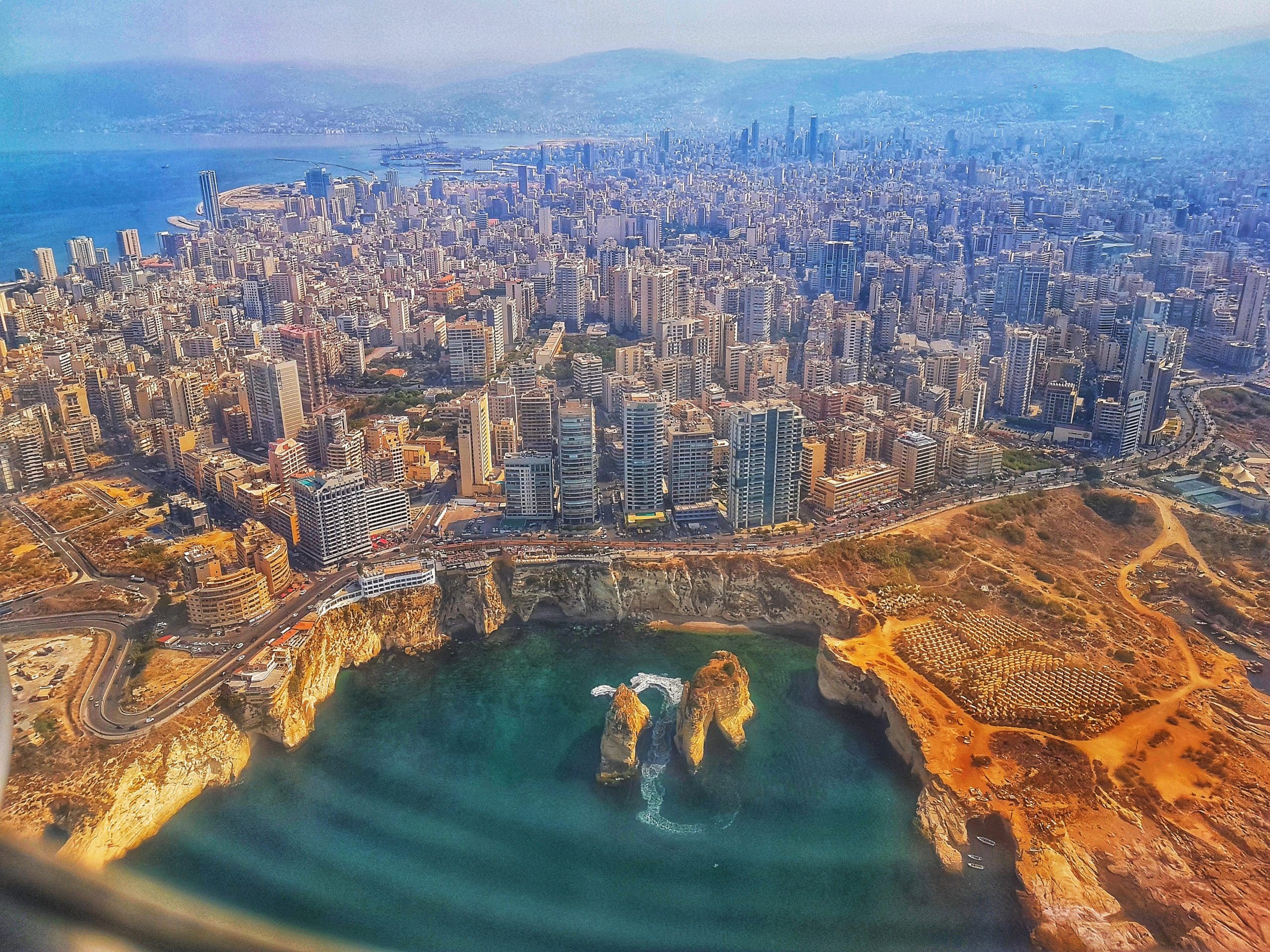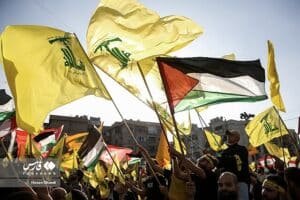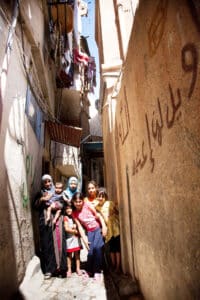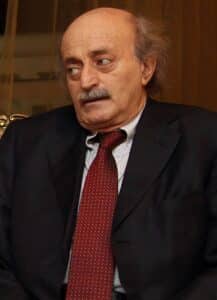Although Lebanese general elections took place on May 6th, efforts to form a cabinet still have a long way to go. Finally, Prime Minister-designate Saad Hariri on June 11th handed in a first proposal which ostensibly combined all sides’ demands, but the cabinet layout was rejected on June 25th by President Michel Aoun on claims that it still did not allocate ministries proportionally to the respective parties. Hariri has pointed out that the major issue delaying cabinet formation is “the size of the parcel that each political [party] wants to get,” and that at the heart of the conflict are specifically the Lebanese Forces and Progressive Socialist Party. Nonetheless, it is easy to lose the overview of the impossible demands by each side amidst a complicated political-ethnoreligious allocation system.
The Lebanese Political System
The Lebanese President is elected as head of state indirectly by the National Assembly for a term of six years. Michel Aoun of the Free Patriotic Movement (FPM) assumed the position in October 2016 after Lebanon had been without leadership for two years. Upon binding consultation with the same National Assembly, the President then appoints the Prime Minister. Then, after binding consultation with the President and the National Assembly, the Prime Minister forms a Council of Ministers, dubbed “cabinet”. This cabinet can have variating sizes, depending on the results of negotiations between the parties. Although Lebanon is a secular state, certain positions can only be held by individuals of a certain confession or ethnicity. The proposal Hariri presented to President Michel Aoun contained thirty members, and represented all of the main political parties and religions. Until the President accepts the cabinet proposal, the country is led by a caretaker government. Saad Hariri, as of now, is only Prime Minister-designate, but will assume the office of Prime Minister for the third time in a row. He belongs to the Future Movement (FM) and, in line with the constitution’s regulations for the position of Prime Minister, is a Sunni Muslim.
Three Major Obstacles Delay Cabinet Formation
The Lebanese Constitution gives only few dictations on religious and ethnic allocation mechanisms for the cabinet. Regardless, Hariri made it his goal to include all major parties in the cabinet and divide ministries among all parties. As most Lebanese parties are ethnically or religiously motivated, the question of allocation has thus become an ideological one.
ISSUE #1: Christian Representation and Cabinet Size
In May’s elections, the Lebanese Forces (LF), a Maronite Christian party, received enough votes to secure fifteen seats in parliament, leaving Hariri no other option but to include the LF in the cabinet as well. However, the LF have had varying demands, calling for at least four ministries. In talks with the other Christian parties that are seeking ministerial positions, Bassil, Caretaker Foreign Minister and leader of the FPM, the largest Maronite Christian party, called this demand unacceptable, and in turn lobbied for the LF to be allocated only three. The conflict was the first of a series of three obstacles Hariri had to tackle, and in his rejected proposal to President Aoun, he allocated the LF the four ministries they had demanded, while giving the FPM five. This aroused the LF’s anger, as the calculations added up to a thirty member cabinet, which is much larger than the 24 members the LF had hoped for. When Hariri proclaimed that he would not be swayed in his decision to make the cabinet be composed of thirty members, the LF on June 25th stepped up their demands, asking for the same representational size in cabinet as the FPM. Lebanese Forces officials explained:
“We must have an equal share of ministries in the new cabinet to the FPM. This was part of the [LF-FPM Maarab Agreement]. If not, we will abstain from participating and go to the opposition.”
Additionally, LF MP Eddy Abillama stressed that the issue should not be about “splitting shares”, but rather about “reflecting the popular representation.” This demand is not yet incorporated by Hariri, but if he accepts, this would leave the LF with five ministries, as well, and require another party to lose a ministry. To solve this issue, President Aoun suggested that the cabinet could also be composed of 32 members, and then potentially even include the Alawite and Assyrian minorities.
ISSUE #2: Sunni Presentation by the March 8 Coalition
From 2011 to 2013, the ruling coalition in Lebanon was composed of various parties, among them the Amal Movement, Hezbollah, the Lebanese Democratic Party, and, after switching from the rival alliance, the FPM. This ruling coalition was given the name “March 8 Alliance”. In the current negotiations, the coalition has lost its significance, with the parties competing individually for ministries. While the ministries of Defense, Interior, Foreign Affairs and of Finance are said to have been divided among the Future Movement, Amal Movement and the FPM in Hariri’s first proposal, Hezbollah are still bargaining for either the Health or Energy Ministry. However, Hariri has announced that he will not allow any of the “March 8” Alliance’s parties to suggest a Sunni representative, which has sparked controversy. This also connects to the fact that the “March 8” parties are majorly Shia, and refusing them a Sunni position is thus a clear religious categorization. FPM leader Bassil voiced his opposition to this strict religion-based allocation.
ISSUE #3: Druze Representationand PSP-FPM fights
Lebanon is home to 200 000 members of the Druze community, an ethnoreligious group, and the Progressive Socialist Party (PSP) led by Walid Joumblatt is said to have the largest Druze basis. According to the Constitution, the cabinet allows for three ministers for the Druze community, and the PSP demands that all three come from its own ranks. If Hariri incorporated this demand in his next proposal to Aoun, Prince Talal Arslan of the also majoritarian Druze Lebanese Democratic Party would not be able to assume any ministerial position. However, Walid Jumblatt is said to have decreased his chances of convincing Hariri of his plea: On Twitter, Jumblatt on June 16th called the presidential term of FPM’s Michel Aoun “a failure since its first moment,” as quoted by Naharnet. Jumblatt posted his accusation during Eid al-Fitr, the fest marking the end of Ramadan, and in the following days sparked street clashes between PSP and FPM followers. The FPM’s MP Alain Aoun, nephew of Michel Aoun, described the situation as “hell [being] about to break loose” and the situation was only contained by after the FPM mobilized its “contacts”.
Hariri’s Government Depends on Cooperation with Other Parties
Accusations and competition do not end with the three issues laid out above, and the general political climate is exhausted. In the last efforts to form a government in 2014, it took the Prime Minister ten months to do so, as the reformation had followed a political deadlock which could only be solved by a large overhaul. The elections of May 6th were the first general elections in almost a decade, and Hariri’s Future Movement was left with a decimated amount of only 20 seats. Due to the bad election results, Hariri depends immensely on good cooperation with the other parties, and is forced to compromise at all corners. However, Hariri emphasized that “there are no external obstacles, but internal ones; and they can be solved.” The debate remains heated, and both Hariri and speaker of Parliament Berri have warned that bold reforms might again be necessary to tackle the current circumstances surrounding government formation.
Sources
Al-Awsat I ǀ Al-Awsat II ǀ Al-Awsat III ǀ Al-Awsat IV ǀ Al-Awsat V ǀ Al-Awsat VI ǀ European Forum ǀ Image ǀ Lebanon’s Constitution ǀ Naharnet ǀ Reuters ǀ The National



